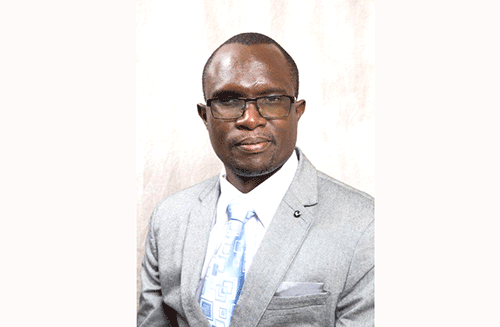KATIMA MULILO – Swapo member of parliament in the National Council John Likando has observed there was little preparation to ensure appropriate and relevant human resources were in place to implement the changes to the curriculum.
Generally, he said, the current system is well-crafted but not properly resourced.
“Our current teaching force lacked the capacity to interpret and effectively implement the curriculum. Their professionalism and commitment seem to be lacking. Teachers were not prepared to understand the changes,” Likando said during a debate on the education report on the higher failure rate for NSSOC and NSSAC in the National Council this week.
He pointed out that teacher preparation is critical and should not be a once-off but rather a continuous process because of the high turnover rate.
Further, he suggests support materials, such as books and other support resources, including laboratories and libraries, were supposed to be secured before implementation.
With the revised education curriculum, the junior primary phase will be from grades one to three, while the senior primary phase will be from grades four to seven.
The junior secondary phase includes grades eight and nine, and they will require learners to write junior secondary semi-external examinations at the end of grade nine.
Grade 11 has become the first exit point from basic education and learners who do well in grade 11 may go ahead to grade 12.
Grade 12 is referred to as the Advanced Subsidiary (AS) level, which has been implemented since 2021 as part of the third basic education curriculum change that started in 2012.
Likando opined that financial resources for the implementation should have been properly estimated, considering all the needs that will require resources.
“Curriculum change is expensive and needs to be properly planned. In most cases, the failure of an education system is not the curriculum but rather its implementation.”
Sadly, he said, discipline in schools is a challenge because many learners are coming from child-headed households, broken homes and single parenting.
“Discipline among learners has indeed become a challenge. Learners lack parental guidance and supervision,” he alluded.
Therefore, he reminded Namibians that education is a collective responsibility that should not be left to teachers alone, but that parents, unions, researchers and scholars are at all times needed to make meaningful contributions to the education sector.
“On a serious note, the change of syllabus subjects has caused a major setback. Myself, standing here as a cape education learner, I studied Geography and History from upper primary and throughout the senior secondary level, while general science only changes at a secondary level, where the other part becomes Biology and other, Physical Science,” he recalled.
However, he says the current curriculum talks about social studies, which is very difficult for the learners to prepare for their future careers, as it is so wide to get a desired field of study at tertiary level.
Likando recommends subjects like Economics be done at the secondary level as a major subject as part of the preparation for better university or college entry.
He proposed the introduction of wealth management, investment and savings as school subjects, saying they are important.
He said Namibia has well-trained economists and engineers as scholars, but practically very few understand the investment opportunities in their careers.
“These key elements cover the most important part of life and career. Our fellows from the west and east prepare for their retirement at the time of birth, and retirement to them is business: to travel around the globe to build investments and enjoy life until death.
“While here, in Africa, especially at home, when you buy 20 cattle, a house and a Land Cruiser… next two years… the same person is poor. It’s worrisome… Let’s prepare our learners for inheritance and investment so that when they are financially disciplined, everything will be in good standing.”
Additionally, Likando feels learner support is a serious challenge in rural schools, especially schools that host morning and afternoon sessions, due to a lack of infrastructure and, at times, manager supervision.
He charged the mines and energy ministry has, over the past years, failed to live up to the promise of rural electrification.
“Namibia, at 34 years old, still has schools in rural areas, such as Muzii, Ikaba, Mpukano and Nsundwa without electricity, while many homes and villages remain dark due to the slow implementation of rural electrification and the expected results on learners and the general performance of rural circuits,” he lashed out.


